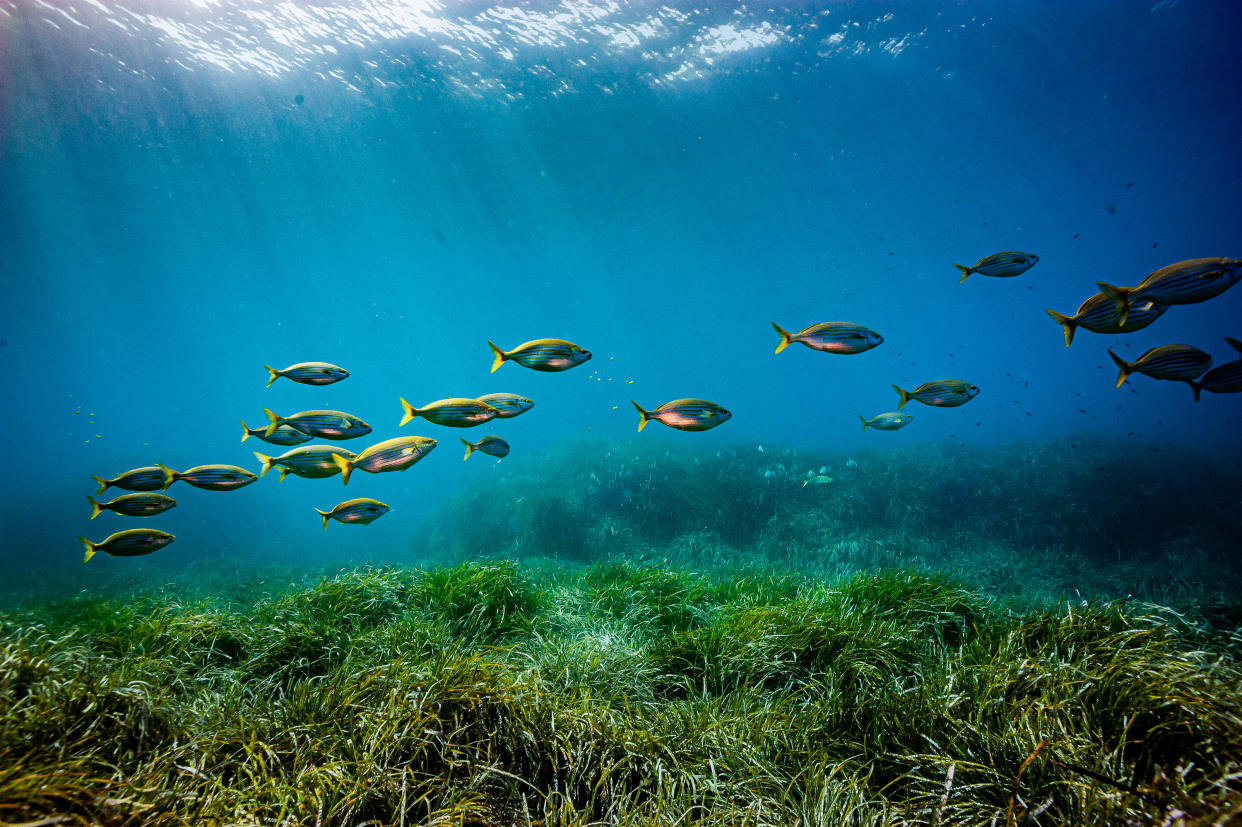The week's good news: Oct. 5, 2023

- Oops!Something went wrong.Please try again later.
eDNA technology is changing ocean research for the better
Scientists are using eDNA to better understand what's under the sea and come up with conservation policies that work. Also referred to as environmental DNA, eDNA "originates from cellular material shed by organisms into aquatic or terrestrial environments that can be sampled and monitored using new molecular methods," the U.S. Geological Survey explained. Scientists gather water samples and test them for animal DNA to determine if there are any invasive pests in the area and track migrations. In France, researchers used eDNA to confirm the presence of rare angel sharks in the Mediterranean Sea, and now ocean managers are taking steps to protect the species. Scientist Stéphanie Manel, a professor at the École Pratique des Hautes Études, told The Washington Post her goal is to use eDNA to create "a map of the biodiversity in the Mediterranean." The Washington Post, USGS
Wildlife is returning to the island of Redonda
Redonda has come back to life. This uninhibited island is part of Antigua and Barbuda, and last month, the government established the Redonda Ecosystem Reserve, covering 74,000 acres of land. In the 19th century, Redonda was home to wildlife like iguanas and birds; colonists then arrived to mine guano for use in fertilizers and gunpowder, bringing with them goats that ate vegetation and rats that ate reptiles and bird eggs. The island became nearly barren, and wanting to revive it, environmental groups came together in 2016 to relocate goats and eradicate rats. It took two years, and almost immediately vegetation began growing, land birds returned and the Redonda ground dragon population increased. The reserve is the Eastern Caribbean's largest marine protected area, and the next goal is to reintroduce native species that were pushed out of Redonda, like the burrowing owl. BBC
Town unites to help boy find missing Lego
Jack Steel figured it was worth a shot to put up a missing person poster for his lost Lego, and his instinct was correct. The 10-year-old from Ulverston, England, made a Lego figure over the summer that looked just like him, and carried it everywhere. When he realized it fell out of his backpack and was nowhere to be found, he created a poster with a drawing and description of the Lego and put it on a pole along his route to school. His mom, Lorna Walker, shared an image of the poster on her Facebook page, and neighbors started searching for the figure. It was found by a teenager whose mother saw Walker's post. Steel had offered a reward of £2 ($2.50), but instead bought the teen a box of chocolates. A grateful Steel told The Washington Post it meant a lot to him that "when all the people saw the poster, they wanted to help." The Washington Post
Guinea worm is nearly eradicated
The Carter Center is just six cases away from reaching its goal of eradicating Guinea worm. Former President Jimmy Carter and former first lady Rosalynn Carter founded the Carter Center in 1982 and the eradication program in 1985, when there were about 3.5 million Guinea worm cases in Africa and Asia. As of this month, there are just six human cases worldwide. People typically get the disease by consuming water fleas found in contaminated water. The Carter Center has funded projects to distribute filters able to remove larvae from water, and educates people on prevention. Carter, who recently turned 99, said in 2015 that his wish is for "the last Guinea worm to die before I do." The Atlanta Journal-Constitution
Second malaria vaccine approved for use expected to make a 'big impact'
The World Health Organization approved a second malaria vaccine this week, called R21/Matrix-M, which is intended for children between 5 and 36 months. "As a malaria researcher, I used to dream of the day when we would have a safe and effective vaccine against malaria," WHO Director-General Tedros Adhanom Ghebreyesus said. "Now we have two." The first vaccine — RTS,S — was recommended for use two years ago. Malaria is a mosquito-borne disease and can be deadly, having killed an estimated 619,000 people, most of them children, in Africa in 2021. Clinical trials in four African countries showed that after kids were vaccinated with the newly-approved vaccine, there was a 75% decrease in malaria cases the next year. "I am very, very happy," Halidou Tinto, head of the Clinical Research Unit of Nanaro in Burkina Faso, told NPR. "We are pretty sure this vaccine will have a big impact in terms of public health." NPR

